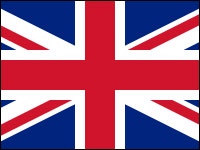
A committee of British Members of Parliament laid into executives from Amazon and Google on Monday during a hearing over creative tax accounting practices.
According to The Guardian, the execs were accused of diverting hundreds of millions of dollars worth of UK profits to “secret tax havens” in an effort to avoid paying British taxes.
Andrew Cecil, Amazon’s director of public policy, was decried as being “deliberately evasive” after failing to disclose how much profit Amazon generates in Britain. Cecil also declined, either out of ignorance or unwillingness, to say who owns Amazon’s Luxembourg-based holding company. An MP said that Cecil was not a “serious person” to speak before the committee and promised to summon another Amazon executive to supplement Cecil’s myriad non-answers.
Amazon’s European headquarters are in Luxembourg, which has lower taxes than the UK. According to The Guardian, MPs claimed this setup allows the company to pay less than half the average corporate tax rate on foreign profits than it would in the company’s major European markets — like, say, the UK.
Meanwhile, a Google executive admitted that the company operates in Ireland because of its low corporate tax rate. Not that this admission absolved Google: The committee chair called it “immoral” behavior.
Google’s tax filings reportedly showed US$4 billion in UK sales last year. However, the company paid just $5.4 million in taxes.
Starbucks was also a focal point of Monday’s hearings.
None of these companies have been formally charged with any legal wrongdoing. They do, however, appear to be taking advantage of tax loopholes — loopholes that, if Monday’s testiness is any indication, some lawmakers want closed.
Apple Hit With Fee For Fauxpology
The British court overseeing the legal battle between Apple and Samsung is forcing Apple to pay for Samsung’s legal fees.
According to Information Week, Apple will be forced to cover lawyers’ fees on an indemnity basis, which is higher than the standard basis that is normally applied, because of its failure to carry out the edicts of the July ruling.
Apple was ordered to publish a notice acknowledging that Samsung had been absolved in the companies’ UK patent case. Apple did indeed publish a notice, but it was widely viewed as snarky: While touching on the ruling, the notice pointed out that Samsung’s products were deemed “not as cool” by the judge, and added that Apple had won similar rulings in other countries.
The court ordered Apple to take down that original notice and replace it with a more conciliatory one. Apple did this — but made it much shorter and much harder to find than the original.
This — along with Apple’s refusal to post the new notice immediately upon removing the old one — reportedly irked the judges enough to prompt the fees.
Russians Angry Over Web Restrictions
Russian citizens are increasingly upset about a new Internet censorship law following the ban of numerous popular websites, according to Russia Today.
Discontent over the law, which allows authorities to force ISPs to restrict “unwelcome” websites, began in July, after the law was proposed. Now in effect, the law has forced a blackout on more than 180 websites.
Among the banned sites are rutracker.ru, a popular file-sharing site that was nixed because it shared a file on suicide, and Lib.Rus.Ec, an online library that reportedly contained text from The Anarchist Cookbook.
There is widespread online discussion about how to bypass the blocks, RT.com reports.





















































